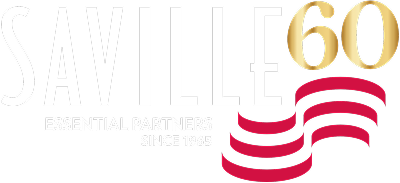Notice 2020-39
Late last week the IRS issued Notice 2020-39 in order to provide additional relief to Qualified Opportunity Funds and their investors due to COVID-19. Listed below is a general explanation of the relief provided.
- Background: Taxpayers are generally granted a 180-day window during which they may invest their otherwise taxable gain into a Qualified Opportunity Fund (QOF). This 180-day window generally begins on the date of the sale or exchange which gave rise to the realized gain. The 180-day window may be altered in cases where the asset was held by an entity.
- Relief: If the Taxpayers 180-day investment period falls on or after April 1, 2020, and before December 31, 2020, then the last day of the Taxpayers 180-day investment period is postponed to December 31, 2020. The Taxpayer must still make a valid deferral election and file all applicable tax forms with the Taxpayers Federal income tax return for the year in which the gain otherwise would have been recognized.
- Background: The Qualified Opportunity Fund (QOF) rules generally provide that a QOF must comply with a 90% investment standard. The QOF must perform semi-annual tests to confirm that 90% of the entities assets are made up of Qualified Opportunity Zone Property. If the QOF fails to pass this test then a penalty is assessed. However, if the QOF is able to show the failure is due to reasonable cause then the penalty is not imposed.
- Relief: If a QOF which has a testing date occurring during the period beginning on April 1, 2020 and ending on December 31, 2020 fails to comply with the 90% investment standard, then such failure to comply will be considered a failure due to reasonable cause and will be disregarded for purposes of determining whether the QOF satisfies such requirement for such taxable year.
- Background: Qualified Opportunity Zone Businesses are permitted to use a working capital safe harbor in order to comply with the 5% restriction on nonqualified financial property during the development phase of a project. There are many requirements which must be met in order to qualify for the working capital safe harbor. Under the safe harbor, the entity is permitted a 31 month time period during which it may hold nonqualified financial property. If certain requirements are met, an entity may stack up to two working capital safe harbors creating a maximum 62 month safe harbor period. If the entity is located in a qualified opportunity zone which is within a Federally declared disaster area, and all other working capital safe harbor requirements are met, then the entity may receive an additional 24 months to expend its working capital assets.
- Relief: All qualified opportunity zones are now located in a Federally declared disaster area. Therefore, assuming all other working capital safe harbor requirements are met, a qualified opportunity zone business may now have an additional 24 month period to expend its working capital. This brings the total period possible under the safe harbor to 86 months.
- Background: One of the many requirements of qualified opportunity zone business property is the requirement that the property be either original use or else be substantially improved. The substantial improvement requirement provides a 30 month period during which the property must be substantially improved.
- Relief: The period beginning on April 1, 2020 and ending on December 31, 2020 may be disregarded in determining any 30 month substantial improvement period.
- Background: A QOF is generally provided a 12 month period during which the QOF may reinvest the proceeds received by the QOF when it sells or disposes of some or all of its qualified opportunity zone property. The proceeds must be reinvested into other qualified opportunity zone property. If the QOF reinvest the proceeds by the last day of the 12 month period, then the proceeds are treated as qualified opportunity zone property for purposes of the 90% investment standard. If the QOF’s plan to reinvest the proceeds is delayed due to a Federally declared disaster, then the QOF is granted an additional 12 month period provided the QOF invest the proceeds in the manner originally intended before the disaster.
- Relief: Due to the Federally declared disaster, if the QOF’s 12 month reinvestment period includes January 20, 2020 then the QOF receives up to an additional 12 months to reinvest the proceeds into other qualified opportunity zone property. The additional time is provided so long as all other requirements of reinvestment are met and proceeds are invested in a manner which was originally intended before January 20,2020.

